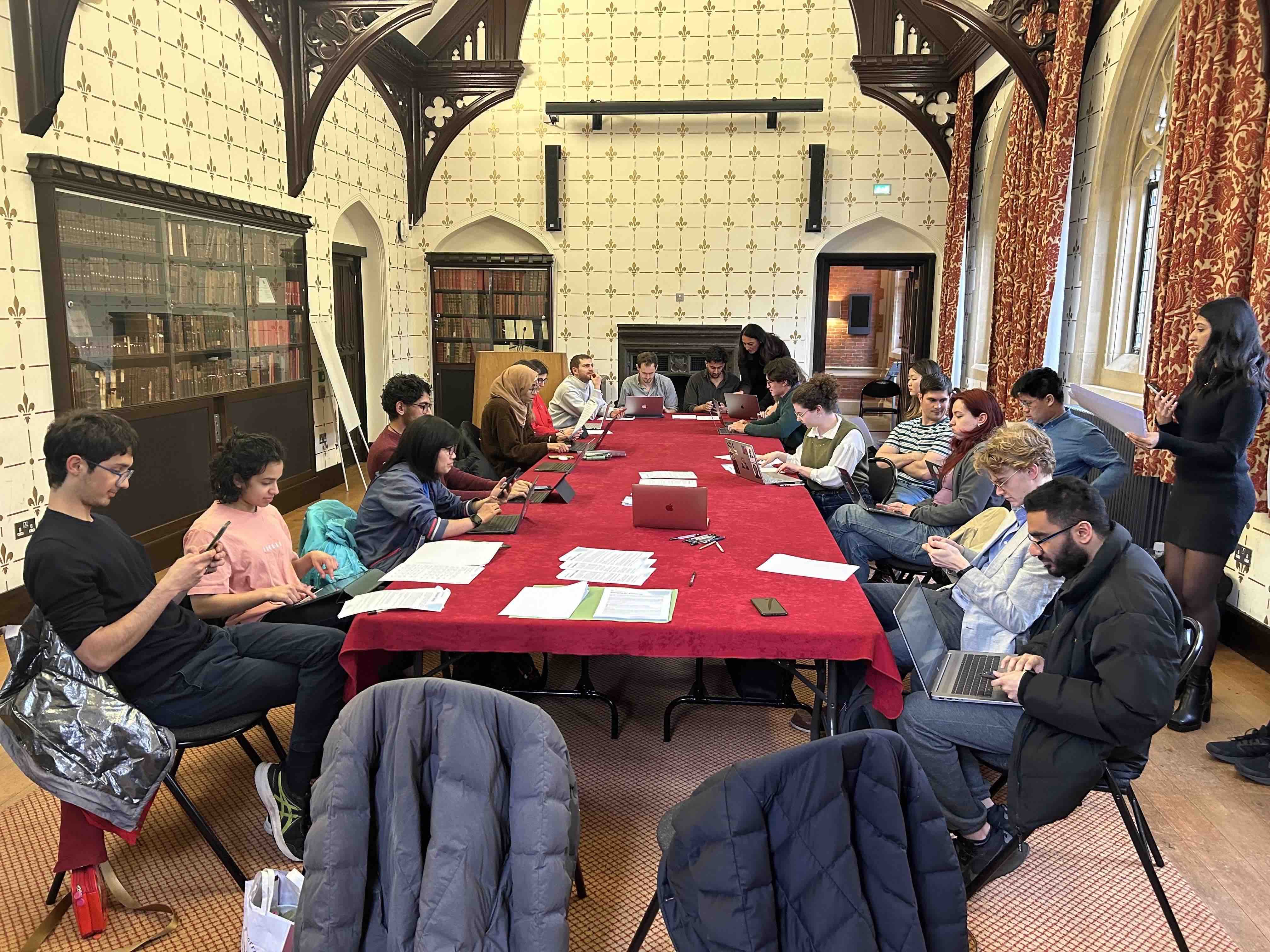Last month, MeditSimple had the pleasure of being invited to St John’s College at the University of Cambridge by the AI in Medicine Society and AI Ethics Society.

This engagement provided a platform for our latest AI innovation, SimpleAI, to undergo rigorous evaluation and constructive critique from a diverse group of talented students and researchers. We were grateful to have the smartest minds from engineering, medicine, linguistics, law and philosophy under the same roof.
At MeditSimple, we are committed to prioritising patient safety and ensuring our technology benefits all patient groups. This collaboration epitomised our dedication to integrating diverse perspectives into every stage of the development process of SimpleAI.
Testing SimpleAI
The evening started with all our participants getting the opportunity to test SimpleAI. The medics in the room tested the AI on their patient cases. The others, coming from diverse backgrounds like ethics, philosophy and engineering, used their own medical experiences to see if SimpleAI streamlines access to the right next best step of healthcare. Following the interaction, the participants were all requested to rank different elements of SimpleAI centred around 4 pillars: efficiency, safety, appropriateness and user-experience. We are pleased to report the following feedback from the testing session:
- 90% agreed that SimpleAI meets its purpose to guide patients to the next best step of care.
- 96% encountered rare or no issues or errors while using SimpleAI.
- 93% agreed that SimpleAI does not provide a diagnosis.
- 96% of respondents agreed that they could make an informed decision about their next step of care based on the information provided by SimpleAI.
Discussing the Ethics of SimpleAI
Following the testing session, we were able to engage in conversations with the participants about their thoughts of SimpleAI. We enjoyed discussing the risks of the anthropomorphism in medical AI, strategies to mitigate unintended harm from the use of SimpleAI, and methods to mitigate privacy risks associated with AI models. These conversations were not only extremely interesting, but have also served as a pivotal platform for the next stages of our development as we ensure that SimpleAI evolves in a responsible and user-centric manner.
Moreover, our visit to Cambridge to test and evaluate SimpleAI is a cornerstone of our attempts to transform healthcare delivery in line with ethics and integrity. This testing session has also served as a response to many of the comments that were raised at our AI Ethics Advisory Board in January so we look forward to updating our Board Members about the knowledge we have gained.
We extend our greatest gratitude to all our participants for their insightful contributions and for challenging us to think deeper about the implications of SimpleAI for patients. Your perspectives are invaluable, and we are looking forward to returning to Cambridge and showing you how we have acted upon the comments provided to us throughout the evening.

